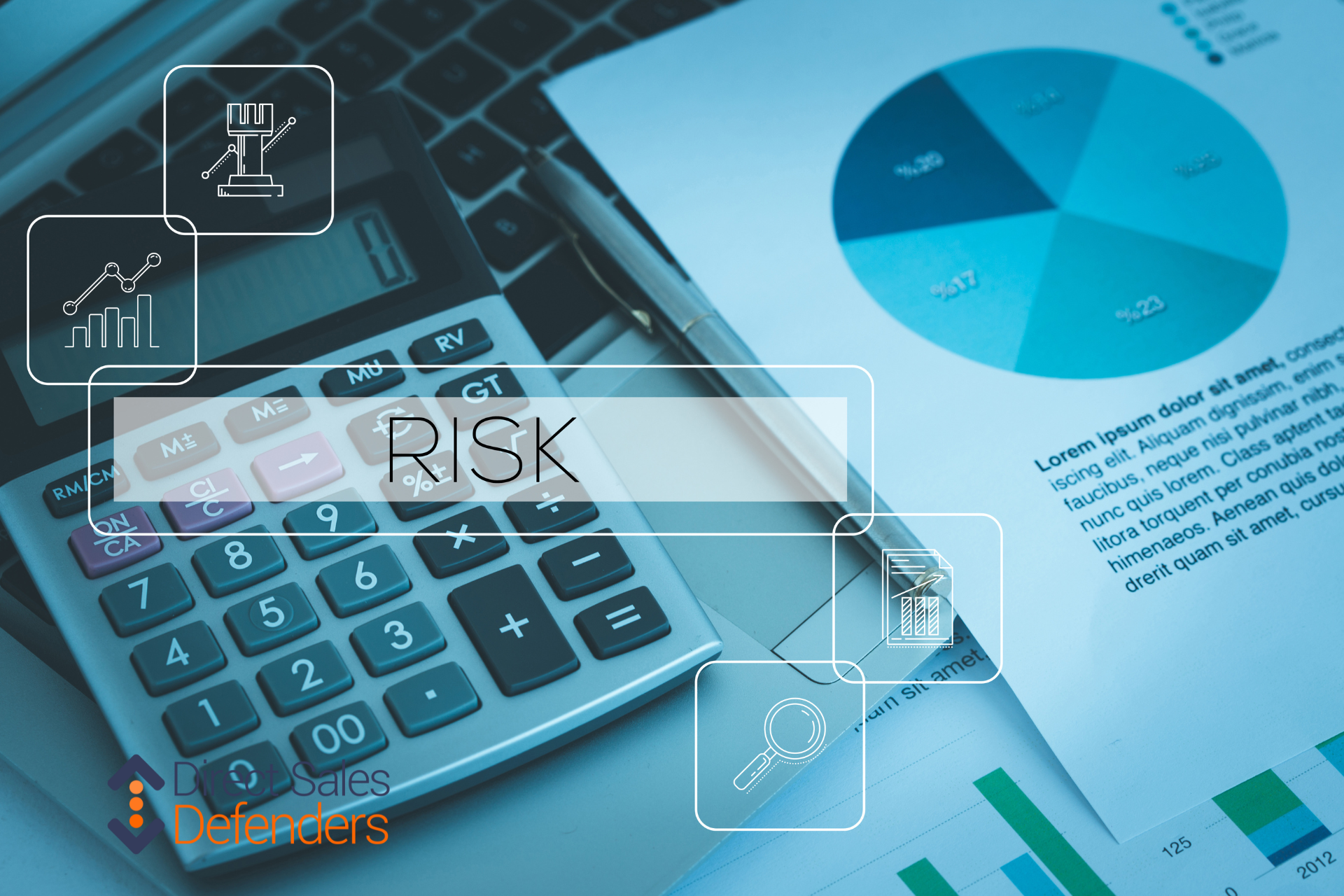Effective Techniques for Handling Reputation Risks in Direct Sales
Reputation is very important in the fast-paced world of direct sales for a business to succeed and last. How customers, partners, and the public see a business can significantly impact its bottom line. If you handle reputation risks properly, they can help your brand’s image, make customers less likely to trust you, and stop your business from growing.
The art of damage control is looked at in this article, which gives businesses in the direct sales industry useful information on dealing with reputation risks. Businesses can protect their reputations and enjoy the benefits of a strong, positive brand image by recognizing the unique problems that direct sales companies face and taking proactive steps to solve them.
Managing reputation risks isn’t just about limiting the damage that could happen; it’s also about taking advantage of chances to grow and expand. Companies that put reputation management at the top of their list of priorities are more likely to build brand loyalty, get new customers, and become leaders in their field.
A well-known reputation management service, DSDefenders, offers complete solutions for the direct sales industry to help businesses deal with these problems. They know a lot about the ins and outs of the direct sales business model and are experts at managing reputations. They give businesses the tools and strategies they need to deal with reputation risks effectively.
Come with us as we talk about the best ways to deal with reputation risks in direct sales. We’ll look at proactive communication, strategic crisis response, using DSDefenders for reputation management, keeping an eye on and tracking your online reputation, and learning from past mistakes. By using these strategies, companies can skillfully handle reputational risks and protect the integrity and success of their brand in the tough world of direct sales.
Direct sales companies work in a special setting where their reputation depends on their performance. Many things can hurt an industry’s reputation, such as problems with the quality of the products, bad customer service, dishonest distributors, or a bad public image of the industry as a whole. Businesses need to understand these risks to deal with and lessen them.
One common reputation risk in direct sales is being linked to dishonest business practices or pyramid schemes, making people question the whole industry’s legitimacy. This negative view can make getting new customers harder and building trust with people who might become customers. Direct sales companies also have to work hard to ensure that all of their independent distributors provide the same high-quality products and keep customers happy. If they do this, it can help the company’s reputation.
Reputation risks hurt a direct sales business more than just losing money immediately. A bad reputation can hurt sales, cause customers to stop trusting the brand, make it hard to get new distributors, and even have legal consequences. So, for businesses to protect their brand image and keep their standing in the market, they need to proactively find and deal with reputation risks.
Here are some good ways to deal with reputation risks in direct sales. We’ll talk about the advantages of openness and proactive communication, how important it is to respond quickly and strategically to crises, and how DSDefenders can help by offering specialized reputation management services for this industry. Businesses can confidently handle reputation risks and protect their valuable brand reputation if they understand and use these techniques.
 Managing reputation risks well in direct sales can bring many benefits to businesses. Companies can improve how people see their brand, gain customer trust and loyalty, and open up new markets and business opportunities by proactively addressing and reducing reputation risks.
Managing reputation risks well in direct sales can bring many benefits to businesses. Companies can improve how people see their brand, gain customer trust and loyalty, and open up new markets and business opportunities by proactively addressing and reducing reputation risks.
One of the main benefits of managing reputation risks is that it can improve how people see and trust your brand. Customers trust businesses more when they talk to them about their problems and try to solve them. This good impression can bring in new customers, strengthen relationships with current customers, and set the business apart from competitors.
Taking care of reputational risks also builds trust and customer loyalty. Businesses show they care about customer satisfaction by quickly addressing problems and finding satisfactory solutions. This makes people trust and like the brand more, which makes them more likely to stick with it and tell others about it.
Also, good reputation risk management allows businesses to grow and markets to expand. A good reputation brings in potential customers, which makes it easier to get new customers and move into new markets. Customers are more likely to choose a business with a good reputation over its rivals, which gives the company an edge in the market.
Businesses in the direct sales industry need to use effective methods to reduce damage and keep a positive brand image to deal with reputation risks. Companies can prepare for reputation risks and protect their reputation by using the following strategies:
Proactive Communication and Transparency
To deal with reputation risks before they worsen, you must be open and honest with your customers. This means being clear about what is expected, giving accurate information about the product, and responding quickly to customer concerns or complaints. Businesses can build trust and lower potential reputation risks by being open and keeping customers informed.
Swift and Strategic Crisis Response
For effective management of reputation risks, it is important to make a crisis response plan ahead of time. This plan should include how to immediately respond in the best way when there is a reputation risk, like figuring out what caused it, figuring out how bad it is, and being honest with everyone involved. Quick and smart responses can help stop the damage, lessen the bad effects, and rebuild trust in the brand.
Utilizing DSDefenders for Reputation Management
DSDefenders handles reputation risks in the direct sales industry as its main area of expertise. Businesses that work with DSDefenders can get advice from our experts and solutions that are made to fit their needs. Companies can keep an eye on and manage their online reputation with the help of DSDefenders. They can also deal with negative feedback and put in place plans to protect the integrity of their brand.
Tracking and Monitoring Online Reputation
Businesses need to be careful and keep an eye on their online reputation. This means watching online mentions, customer reviews, and conversations about the brand on social media. Companies can find and deal with reputation risks in real time by using monitoring tools and platforms. This lets them respond quickly and protect their reputation.
Learning from Past Mistakes
Studying how companies have dealt with reputation risks in the past and how they did it can teach us a lot. Businesses can learn about best practices, spot potential problems, and develop proactive ways to avoid future reputation risks by looking at these examples. Companies can keep their brand reputation strong by implementing feedback systems and processes for continuous improvement.
In the following sections, we’ll discuss these techniques in more depth, focusing on how they can be used in real life and what benefits they offer. Businesses can handle reputation risks and protect their brand’s reputation in direct sales by using these strategies and thinking about the specialized services that DSDefenders offers.
To deal with reputation risks in direct sales, you need to be proactive about communicating and being open. Businesses can address customer concerns, give correct information, and keep trust and credibility by keeping lines of communication open and clear. Here are some ways to improve transparentness and proactive communication:
Open Channels of Communication
 Businesses should give customers a number of ways to get in touch with them and voice their concerns or ask questions. There may be phone lines, email, social media, and even live chat on websites that offer this service. Businesses can build trust and show they care about customer satisfaction by being easy to reach, quick to respond, and interested in what customers have to say.
Businesses should give customers a number of ways to get in touch with them and voice their concerns or ask questions. There may be phone lines, email, social media, and even live chat on websites that offer this service. Businesses can build trust and show they care about customer satisfaction by being easy to reach, quick to respond, and interested in what customers have to say.
Regularly Update Customers
Keep your customers updated on any changes, new products, or problems that might arise. You can share this information through email newsletters, blog posts, social media updates, or special sections on your company’s website. Customers feel involved and informed when communication is open and honest. This lowers the risk of bad surprises and reputational damage.
Address Negative Feedback Promptly
Businesses should respond quickly and honestly when they get complaints or bad feedback. Respect the person’s concern, say sorry if needed, and offer a solution or help to solve the problem. Businesses can show customers that they care about their concerns by taking the initiative to solve problems. This can help lower the risk to their reputation.
Educate Distributors and Sales Representatives
Ensure the sales reps and distributors know all about the company’s products, policies, and code of ethics. Businesses can give their employees the tools and training they need to talk to customers, solve problems, and keep the brand’s reputation by giving them thorough training and materials.
Businesses that do direct sales can build trust, protect their reputations, and get closer to their customers by using these proactive communication and openness strategies. Keeping a good brand image and handling problems before they worsen depend on open and honest communication.
In the direct sales business, knowing how to deal with reputation risks is important. Businesses can protect the integrity of their brand, gain customer trust and loyalty, and find growth opportunities by proactively dealing with potential problems. This article has talked about a number of different ways to deal with reputation risks in direct sales.
You need to communicate clearly and proactively to keep a good brand image. Businesses can build trust and credibility with their customers by keeping lines of communication open, responding quickly to customer concerns, and keeping customers informed.
To lessen the damage that reputation risks do, you need to respond quickly and strategically to a crisis. Having a well-thought-out plan for how to handle a crisis and dealing with negative feedback or online backlash in a good way can help limit the damage and rebuild trust in the brand.
Businesses can get expert advice and custom solutions using specialized reputation management services like DSDefenders. DSDefenders knows the unique problems that come up in direct sales and offers complete plans to safeguard and improve a brand’s reputation.
Another important part of managing reputation risk is watching your online reputation and learning from your mistakes. Businesses can avoid future reputation risks by staying alert, responding to negative feedback, and improving.
In conclusion, companies that deal with reputation risk in direct sales can get a lot of benefits, such as better brand recognition, more loyal and trusting customers, and growth opportunities. Businesses can handle reputation risks and protect their brand’s integrity in the competitive direct sales industry by using the techniques discussed in this article and considering using DSDefenders’ services.
Remember, proactive reputation management is the most important thing you can do to fix things. Handling reputation risk should be a top priority for your business. This will help it do well even when things are uncertain.

